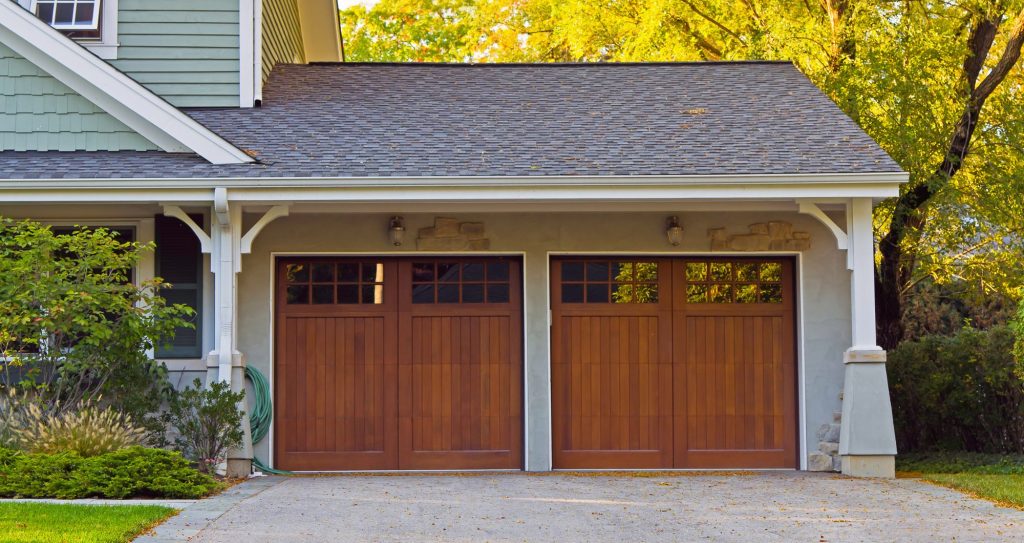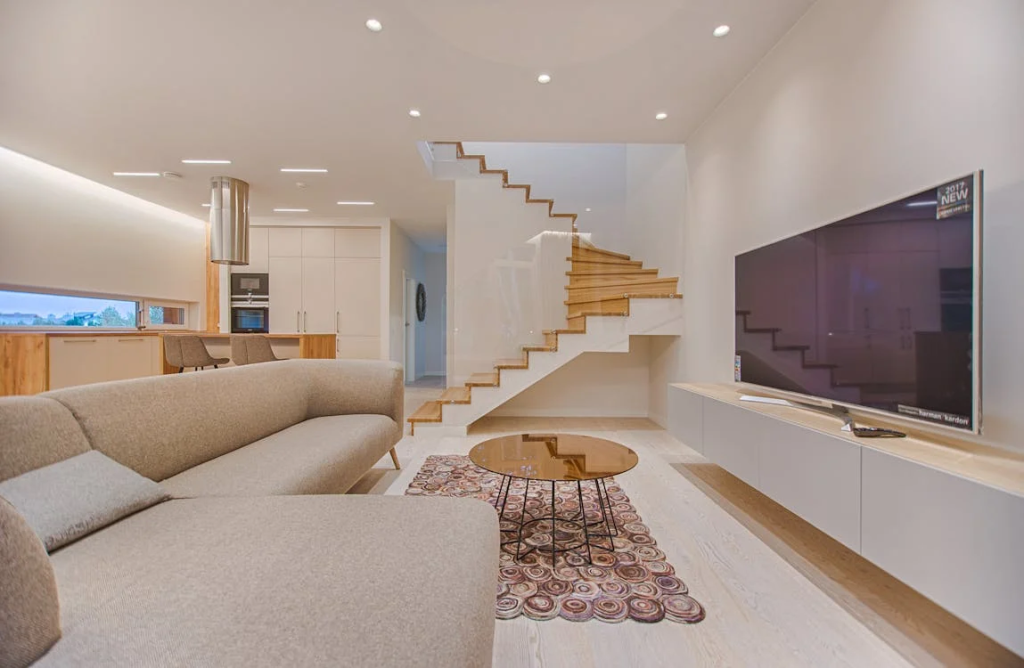The cost of a residential garage door is a question many people ask when deciding on a home renovation or a new house. The price is seldom a fixed parameter as it changes by size, materials, design, and the complexity of installation, not to mention the differences in local labor. The new garage door to be acquired by the house owners in 2025 would cost a minimum of 700 and a maximum of 4500 dollars, going even higher based on luxury and customizations.
This will deconstruct the real prices of garage doors, ranging between the basic and the premium designs, as a way to make an informed choice without having to be oblivious. Whether you want to remodel, create a brand new one, or replace an old door, you should understand these expenses because this would help you save costs and make wiser decisions.
Why Are The Costs Of Garage Doors So Wide?
Garage door prices are not just about their cost. It takes into consideration several factors that affect the final price:
- Type of material (steel, wood, aluminum, fiberglass, or composite).
- Door width (single, double, or oversized).
- The complexity of design (traditional, carriage-house, new glass).
- Solar energy and insulation, and energy-saving characteristics.
- Professional installation and labour expenses.
Each house is different, and what you pay ultimately depends on how you choose to balance style, function, and cost.
How Much Do Residential Garage Doors Cost in 2025?
The cost of a residential garage door in 2025 can only be determined by the type and style. The average cost of a simple single steel door will range between 700 and 1200 dollars for the average homeowner. Insulated steel doors, which are better insulated, offer energy savings, are quieter, and have a range of between 1,000 and 1,800 dollars.
Customers in the upper segment who are seeking a more upscale appearance are likely to spend between 2,500 and 5,000 dollars or more on custom wood garage doors, depending on the quality of workmanship and finishing. Slick-design modern houses may prefer dealing with glass and aluminum doors, which have a price range of between 2,000 and 4,500 dollars.
You should be prepared to spend an amount ranging between 1,500 and 3,000 dollars, inclusive of the installation of a double garage door.
Costs can include more than just the replacement garage door, like the expense to dispose of the existing door, the cost to install a smart garage door, and decorative finishes and paint. Such finishing touches can cost the final bill an extra few hundred dollars.
The Role of Cost Planning in the Projects of Garage Doors

Once researching and deciding on the product, the homeowner must ask around to various installers in their area and compare material availability, warranties, and service. Accurate planning is observed frequently, as in the actual construction takeoff services, so that none of the details can be overlooked, and your project is well kept within budget.
Cost based on White Garage Door Materials
The decision on a type of material in the garage door directly influences the cost of the garage door as well as durability, curb appeal, and energy efficiency:
Steel Garage Doors: Low-Cost Durable
Steel is the most popular and economical material and is found between the prices of 700 and 2,000 dollars. It is all-weather tough, easy to clean, and has insulated options to increase energy efficiency.
Wood Garage Doors: Beautiful and Expensive
Wood doors are classic and more expensive, as an average homeowner would be expected to spend at least between 2500 and 5000 dollars. It has to be maintained as it will warp and suffer from weather conditions.
Contemporary Aluminum & Glass Doors
These garage doors, in aluminum and glass, have modern, sophisticated looks, costing between 2000 to 4500 dollars. They can be perfect in contemporary houses, but have less insulation rating than steel/composites.
Composite / Fiberglass: Mid-Range Alternatives
These products are modeled after wood, at a reduced price, ranging from 1200 to 2800 dollars, and are as durable as wood with reduced maintenance.
Installation Costs: What to Expect
Although the door is the major part of the expenditure, the installation is an additional $300 to $600. The elaborated designs, excessive size of doors, or upgrading the existing older garages can further increase costs.
It is highly advisable to go through a professional in order to have the assurance of safety and warranty reasons. Garage doors have got heavy springs and tracks which, when installed carelessly, may cause accidents and cost a fortune to repair.
Energy Efficiency and Insulation – Are They Adding Value?
More updated types of garage doors are insulated, which is particularly important in case your garage has a direct connection to your interior. Insulated doors are more expensive (15-25 percent) but can save on heating and cooling costs in the long run.
Look at it as an investment: it costs more in the short-term, but you save on energy, quieter operation, and comfort.
Hidden Costs that Thousands of Homeowners Don’t Expect

These are extras to watch when you are calculating how much a residential garage door costs:
- Diffuse removal: $100 – $250
- Smart garage door opener: $200 – $600
- Ornamental hardware and windows: $150 to $500
- Staining or painting (wood doors): $200 – $400
Factoring these in will provide the provision of a sensible budget with fewer surprises.
Pros and Cons of DIY vs Professional Installation: Which is the Most Cost-Effective?
Although a DIY garage door repair or installation project can save some costs in labor, it comes with risks. The torsion and tracks have precision, and an error can result in costly damage or a hazard.
Professional installation means correct alignments, longevity of the door, and warranty coverage. Unless you are very skilled, DIY can be a false economy.
The Long-Term Value of the Right Investment in Garage Door
A new garage door is not just a cost; it is an investment in curb appeal, security, and home value. Based on the reports in the remodeling industry, a new garage door can help homeowners recoup between 80 and 95 percent of the money spent on this improvement at the time of sale.
In addition to that, modern doors enhance security and effectiveness, which makes upgrading to new doors worthwhile.
Conclusion
How much will residential garage doors cost in 2025? Depending on the nature of the materials to be used, size, and complexity of the installation, it should cost homeowners between 700 and 4,500 dollars. Wood and glass doors are very luxurious, but steel or composite doors are cost-effective and durable.
Lay more stress, not on the price, but on the insulation and maintenance costs, on the total value. A new garage door with the right choice can improve energy efficiency and security in addition to value-added curb appeal, so well-placed in the category of smart investments.
FAQs
1. What will a residential garage door for one car cost in 2025?
A simple single-car garage door will cost as little as 700 or 1200, whereas a worse model with insulation or decorative details may go as high as 2000.
2. Which is the most economical kind of residential garage door?
Steel garage doors are the most economical and durable since they retain their value and require no maintenance in the long term.
3. Will a new garage door actually add value to my home?
Yes. Installation cost recouped at the time of home sales is 80–95 percent on average, which places it at the top among the ROI of home remodeling.
4. Is an insulated garage door worth it?
In case your garage is adjacent to the house, insulation is highly advisable to enhance energy efficiency, cut down noise level, and make it more comfortable.




















